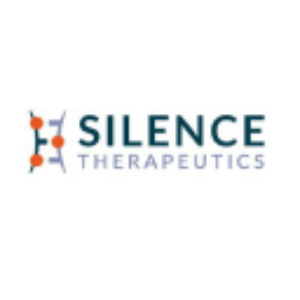Silence Therapeutics Announces JAMA Publication of Additional Phase 1 Data for Zerlasiran in Subjects with Elevated Lipoprotein(a)
Published findings demonstrate zerlasiran was well-tolerated and significantly reduced Lp(a) after single and multiple dosing
Zerlasiran is a siRNA (short interfering RNA) designed to lower the body’s production of Lp(a), a key genetic risk factor for cardiovascular disease affecting up to
“Positive phase 1 data published in JAMA demonstrate treatment with zerlasiran produced sustained reductions in Lp(a) concentrations with a well-tolerated profile using varying dosing regimens,” said Curtis Rambaran, MD, Chief Medical Officer at Silence and senior author of the publication. “The promising findings from this study are particularly encouraging as we complete the phase 2 study for zerlasiran and underscore our commitment to address this major unmet need in cardiovascular disease.”
The single ascending and multiple dose trial enrolled 32 healthy participants and 36 patients with atherosclerotic cardiovascular disease (ASCVD) and Lp(a) concentrations ≥150 nmol/L. Results from the single ascending dose portion of the trial in healthy participants were previously published in the April 2022 issue of JAMA, linked here. Today’s JAMA publication reviews findings from the extended 365 day follow up of healthy participants who received the two highest zerlasiran doses (300 or 600 mg) and 201 days of follow up for ASCVD patients administered 2 doses.
Healthy participants were randomized and received a single subcutaneous dose of placebo, 300 mg or 600 mg; ASCVD patients received two doses of placebo, 200 mg at a 4-week interval or 300 mg or 450 mg at an 8-week interval. The primary outcome was safety and tolerability. Secondary outcomes included the serum levels of zerlasiran and effects on Lp(a) serum concentrations.
Zerlasiran was safe and well tolerated. The median change from baseline in serum Lp(a) concentrations 365 days after single doses for placebo, 300 mg, and 600 mg were +
Zerlasiran is currently being evaluated in the ALPACAR-360 phase 2 study in subjects with baseline Lp(a) levels at or over 125 nmol/L at high risk of ASCVD events.
About Silence Therapeutics
Silence Therapeutics is developing a new generation of medicines by harnessing the body's natural mechanism of RNA interference, or RNAi, to inhibit the expression of specific target genes thought to play a role in the pathology of diseases with significant unmet need. Silence's proprietary mRNAi GOLD™ platform can be used to create siRNAs (short interfering RNAs) that precisely target and silence disease-associated genes in the liver, which represents a substantial opportunity. Silence's wholly owned product candidates include zerlasiran designed to address the high and prevalent unmet medical need in reducing cardiovascular risk in people born with high levels of lipoprotein(a) and divesiran designed to address hematological diseases, including polycythemia vera. Silence also maintains ongoing research and development collaborations with AstraZeneca and Hansoh Pharma, among others. For more information, please visit https://www.silence-therapeutics.com/.
Forward-Looking Statements
Certain statements made in this announcement are forward-looking statements within the meaning of the
View source version on businesswire.com: https://www.businesswire.com/news/home/20240408451903/en/
Inquiries:
Silence Therapeutics plc
Gem Hopkins, VP, IR and Corporate Communications
Tel: +1 (646) 637-3208
ir@silence-therapeutics.com
Media Relations
MKC Strategies
Mary
Tel: +1 (516) 606-6545
mconway@mkcstrategies.com
Source: Silence Therapeutics plc







